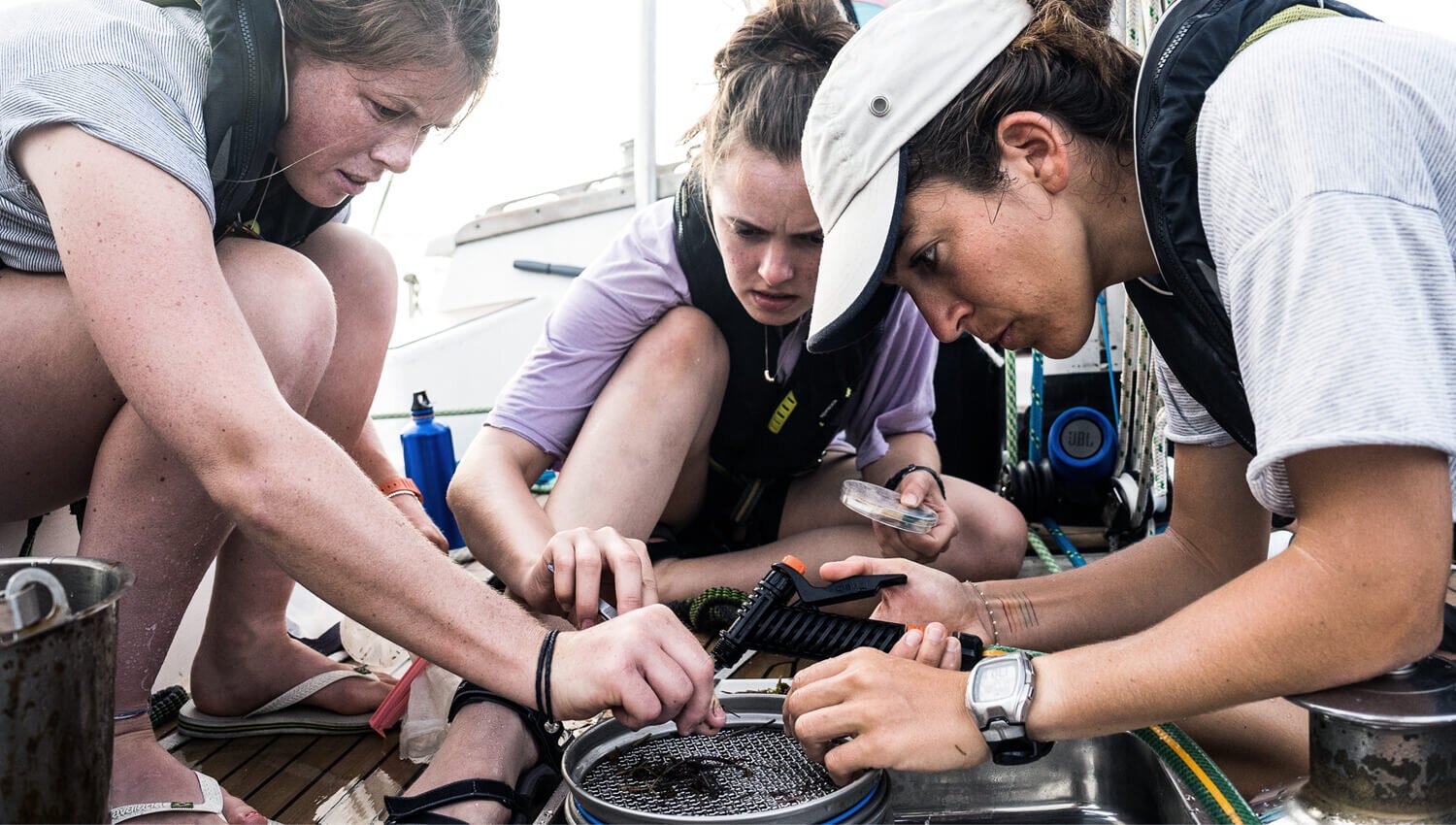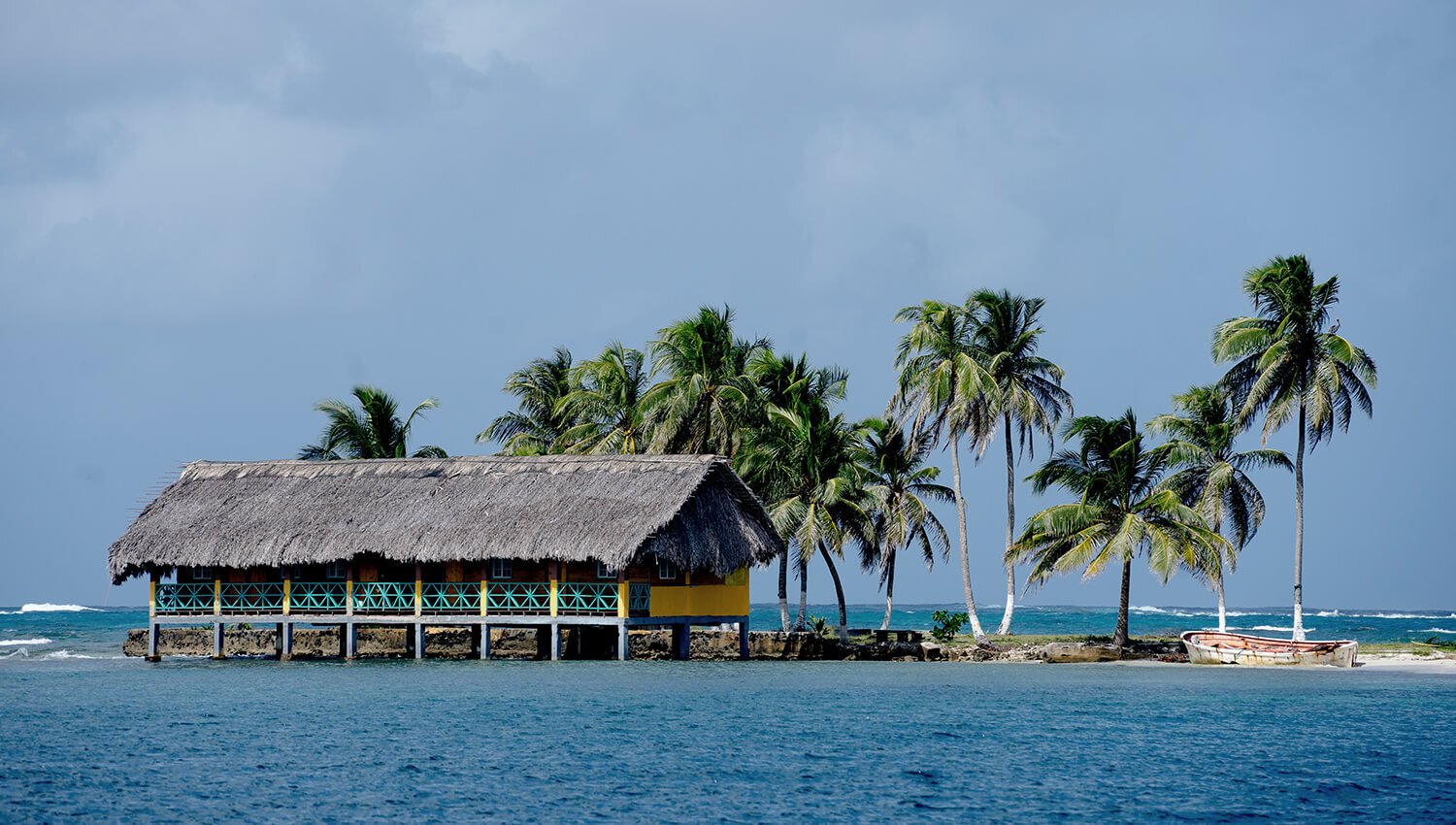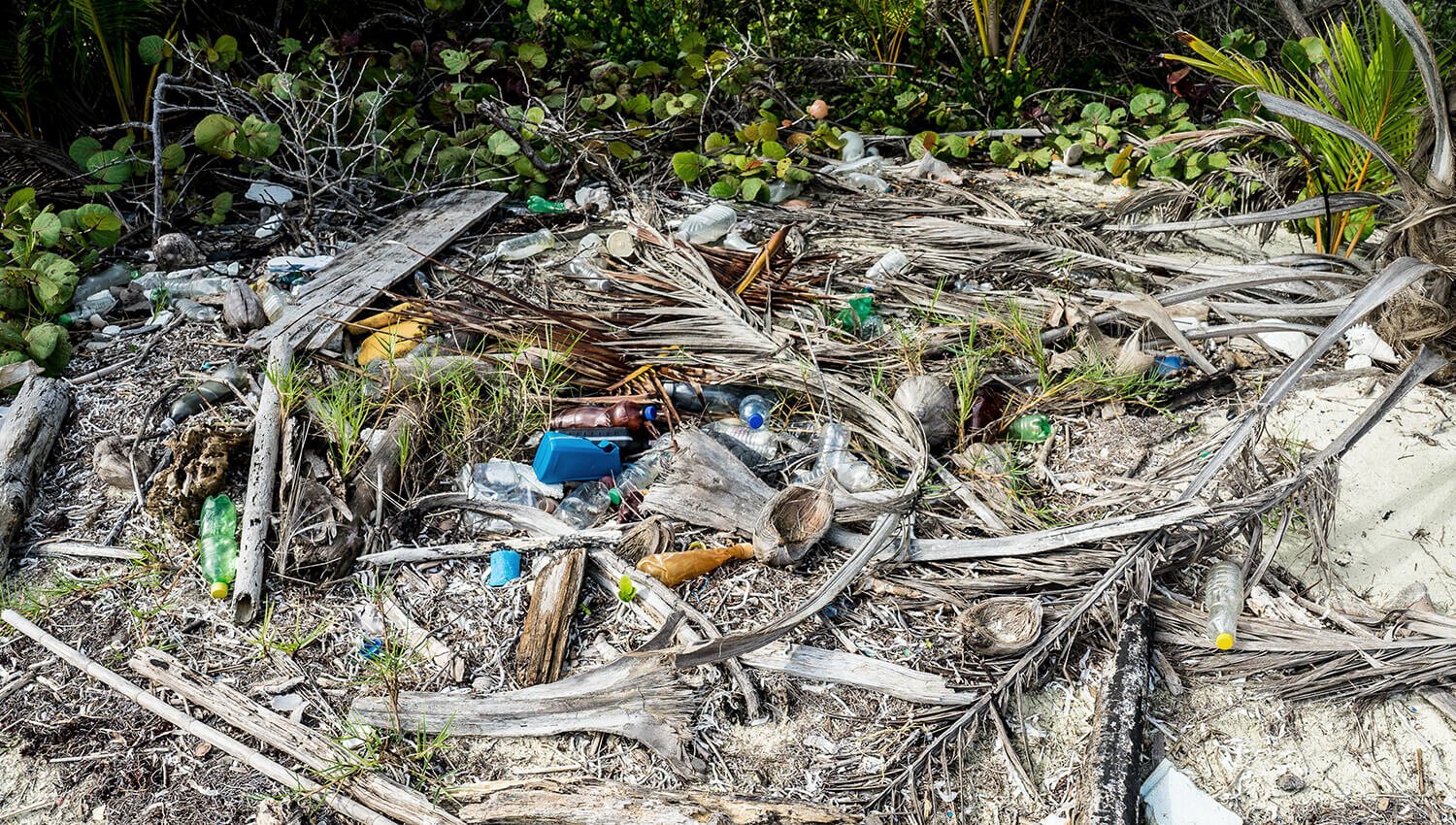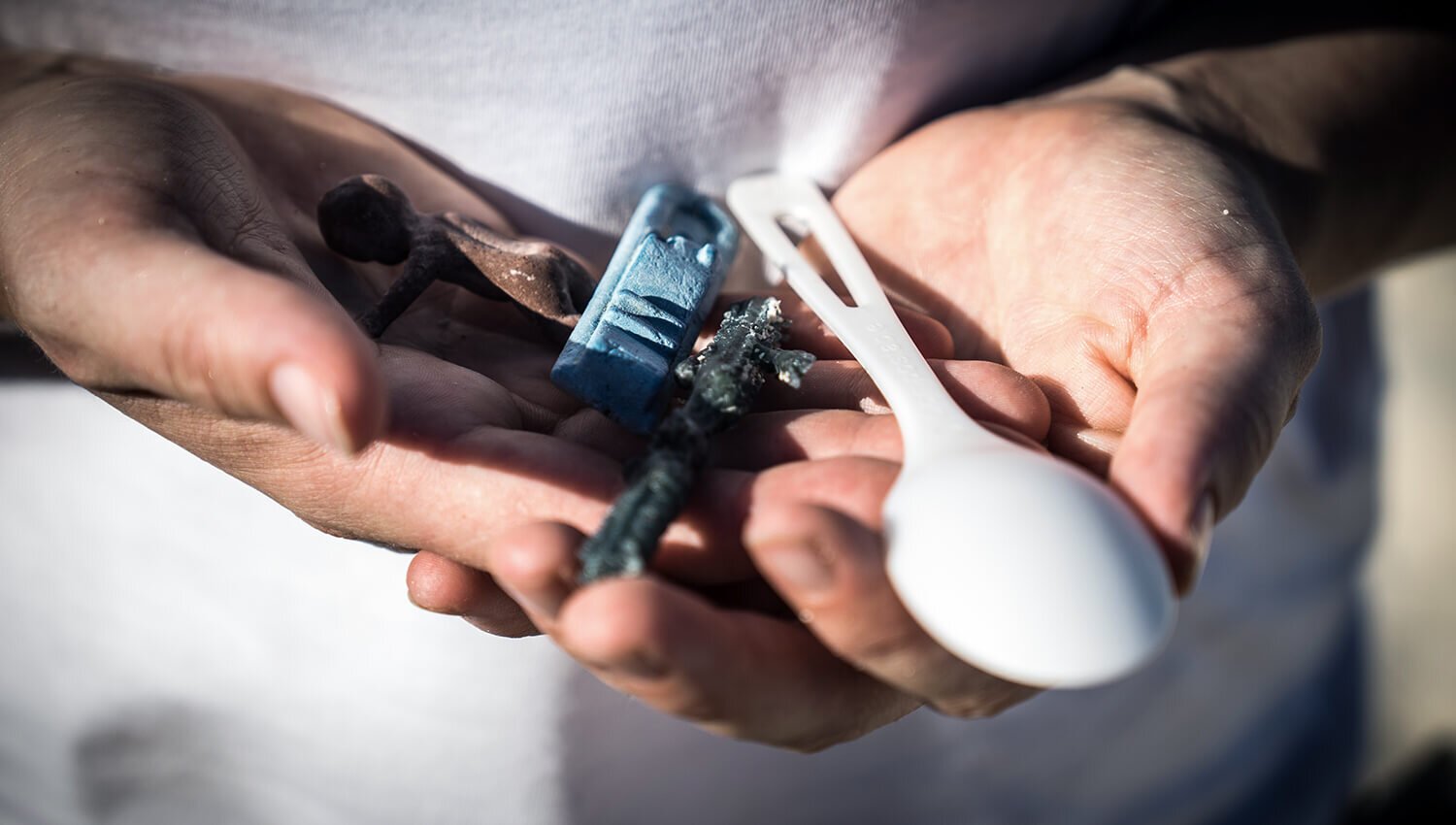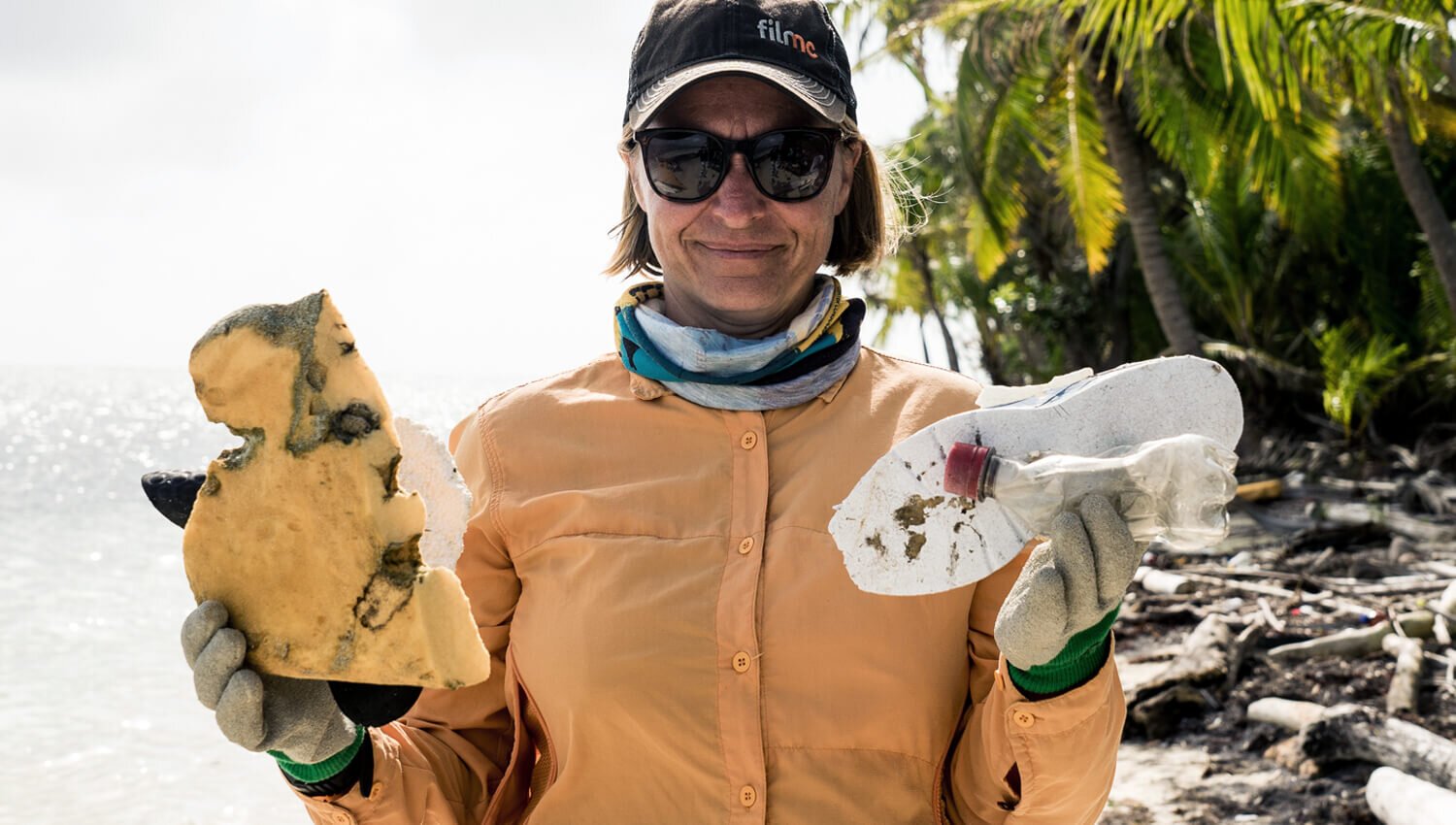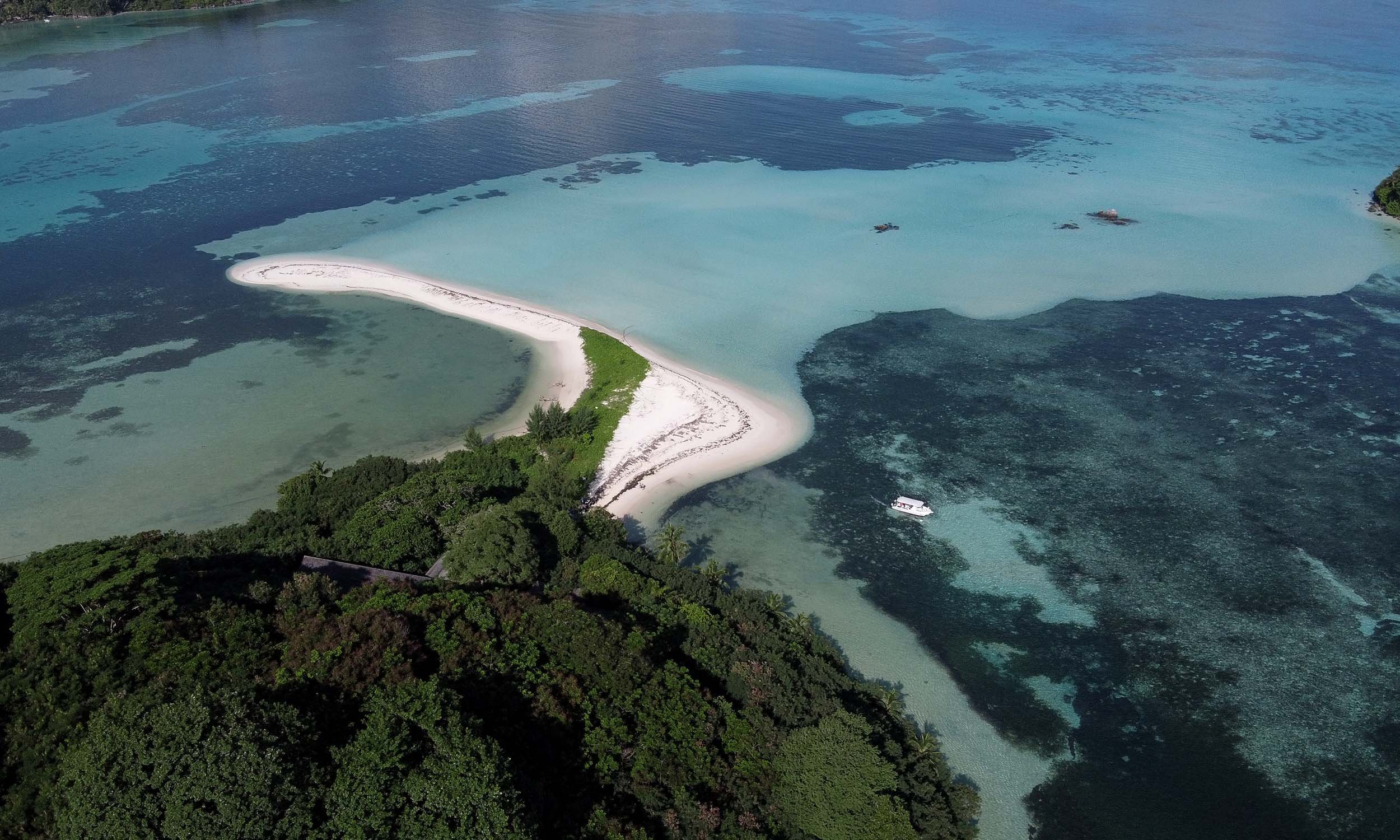Science Vs Plastic: Assessing pollution in the Caribbean
A new study from Emily Penn’s all-female eXXpedition provides the first holistic assessment of plastic pollution in the Caribbean
Led by Emily Penn, eXXpedition is a pioneering all-female sailing voyage and scientific research mission raising awareness of the devastating environmental and health impacts of single-use plastic and other toxins in the world’s oceans – and our bodies. Parley supported their 2018 North Pacific Gyre mission and Emily’s talks at Parley events ranging from World Oceans Day to our inaugural youth-focused Ocean Uprise camp always resonate strongly with audiences – sharing her amazing story and speaking to the impact a dedicated and diverse group of women can have.
Now, in the wake of their ongoing eXXpedition Round the World mission, the team have released their first scientific paper: an analysis of marine and land-based plastic pollution in the Southern Caribbean. Off the coast of five countries, team members identified 18 different polymers of plastic – including synthetic fibres, paint flakes and acrylics – in the waters of the Caribbean.
Detailed ocean modelling and an assessment of regional policies showed that the microplastics likely arose from a combination of distant sources carried by ocean currents and run-off from mainland countries like Panama, which has some of the highest estimated levels (around 44%) of mismanaged waste in the region. In contrast, the waters off Antigua, Bonaire and Colombia had lower quantities of terrestrial and marine plastics. Antigua, in particular, had a high diversity of polymers, with the research suggesting the majority of the microplastics collected were likely to have been transported by currents generated in the wider North Atlantic Ocean, even originating in the so-called North Atlantic garbage patch.
“We all share one planet and wherever we live the ocean connects us”
Emily Penn
”The striking discovery was the huge diversity of polymer types which means the pollution has come from many different sources and as a result means the solutions need to be diverse too,” says Emily Penn. “We all share one planet and wherever we live the ocean connects us. This study demonstrates why for any game-changing action to tackle ocean plastic pollution cross-border collaboration from all sectors of society is needed in a holistic way across the Caribbean region and beyond.”
The research was led by scientists at the University of Plymouth (UK) in conjunction with the University of Georgia (USA), Plymouth Marine Laboratory (UK) and the Technological University of Panama – the full paper is available here for free for 50 days.
Photos courtesy of eXXpedition

